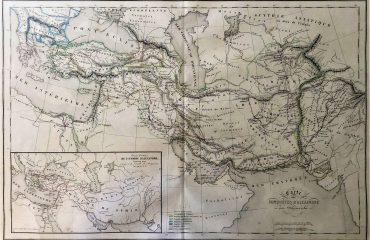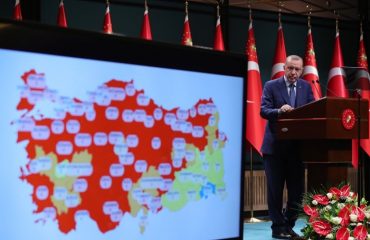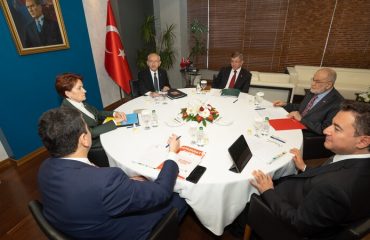It was a relief for Turkish business people when the U.S. President Donald Trump said in a joint press conference with Turkish President Tayyip Erdoğan, in Osaka on June 29, that Turkey had to opt for Russian S-400 missiles because his Democrat predecessor Barack Obama refused to sell Patriots. It was the first time an American official, and no less than the President was acknowledging an American responsibility in the S-400 crisis between the two NATO allies.
When asked about the Congressional demand to deny the delivery of the jointly produced F-35 jets and impose economic sanctions if Turkey would not cancel the arms deal with Russia, Trump said it was a “complicated” matter. Erdoğan, later on, interpreted and expressed this as “sanctions are off the table” answering those trying to find their feet in a declining Turkish economy with what they would like to hear. The CAATSA sanctions by the U.S. have been considered as the major “exterior geostrategic factor” and “policy mistake” factor by political and economic observers assessing the Turkish economy. But as it could be understood from the White House statement, later on, Trump was referring to the complications with Congress in the S-400 crisis. It seems whether the missiles will actually be used will be a matter of diplomacy; after all, Trump said “different solutions” were being worked on. The Americans say they would interfere with the capabilities of the F-35 and open holes in theirs and NATO’s air defense should the two missiles be used together after Russia delivers the first party as President Vladimir Putin promised; Erdoğan said there would be no paddling back.
Actually, Erdoğan was saved from a major economic blow to Tukey’s already shrinking economy (with – 3.0 and – 2.8 per cent in the last two quarters) by Trump who acknowledged a U.S. fault in the crisis (thus giving Erdoğan some time to maneuver). Trump also killed two birds in one stone by putting the blame on the democratic rule of Obama. Trump, in a way, made it clear that the U.S. wanted Turkey to stay in the Western defense system and not side with Russia. The ball is in Erdoğan’s court now but it will not be easy to mend the fences with Congress, which unfairly identifies Erdoğan with Turkey.
But this was the second time in a week that Turkey, under Erdoğan, was saved from a major blow to its economy. The first one was when Erdoğan -willingly or unwillingly acknowledged defeat in the Istanbul municipality re-run on June 23. The center-left opposition Republican People’s Party’s candidate Ekrem İmamoğlu had a landslide victory over Erdoğan’s Justice and Development Party (AKP) candidate after his first win on March 31 was cancelled through objections and demands by Erdoğan to the Supreme Election Board (YSK).
Many embassies in Ankara, as well as financial institutions holding the pulse of the economy in Istanbul, were afraid that if Erdoğan foresaw a second defeat and attempted to cancel the election that could cause a “confidence crisis” in Turkey. It would mean people losing confidence to the entire Turkish system, from elections to courts, from the government to the banks. Perhaps that was the reason why İmamoğlu’s optimistic election slogan as “Everything will be all right” was so embraced by the voters. This time Erdoğan lost badly; it’s not only Istanbul but five largest cities of Turkey that are now run by opposition CHP mayors. In addition, a wave of optimism has started to rise within society, which halted Erdoğan’s so far uninterrupted rise in the last 25 years and the market decline; the psychological factor worked.
Perhaps this was a favor by the U.S. President, not to Erdoğan but to a NATO partner of the U.S., Turkey, whose voters have proven that Turkey is not limited to Erdoğan and Erdoğan is not identical with Turkey, if there is a sophisticated mindset in the White House, going beyond arms trade.
Yes, the optimism is there, on the S-400 issue as well but not everything is over and not only in politics. Turkey also needs a viable program for structural economic reforms which heralds though days ahead for Erdoğan.
Made with ♥ by tbtcreative.com © 2022 yetkinreport.com All rights reserved.
Yetkin Report · Help · User Agreement · Legal


